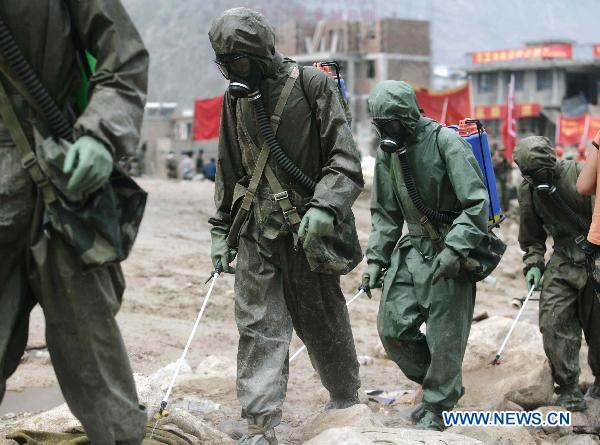Battle to prevent epidemic in mudslide town
China's Ministry of Health said Thursday the spread of disease is a major public health concern in mudslide-hit Zhouqu County in northwest China, after local health facilities and water resources were damaged in the disaster.
 |
|
Soldiers spray disinfectant in landslides-hit Zhouqu County, Gannan Tibetan Autonomous Prefecture in northwest China's Gansu Province, Aug. 11, 2010. (Xinhua/Wang He) |
"Only a small part of the township area was left after the mudslides. A large number of rescue and relief workers and survivors are now living there, increasing the risk of intestinal and respiratory infectious diseases," an unnamed official from the ministry said Thursday.
The official said corpses and dead animals buried under the mud may easily decay under the high temperatures, worsening the epidemic-prevention situation.
Although wells have been dug up to ensure water supply, the ministry said sterilization work is arduous as the water may be contaminated during transportation and preservation.
Vaccines and their refrigeration facilities, along with the networks that report infectious diseases, were destroyed in the mudslides, according to the ministry.
However, with the arrival of new refrigerators and various vaccines, the first vaccination center in the county since the disaster has been set up.
As of 4:30 p.m. Thursday, the death toll from the mudslides had risen to 1,144 with 600 still missing.
Furthermore, the Ministry of Environmental Protection has sent more than 20 experts to Zhouqu in a bid to prevent environmental disasters.
The water quality of the Bailong River remains normal, according to the ministry.
 0
0 






